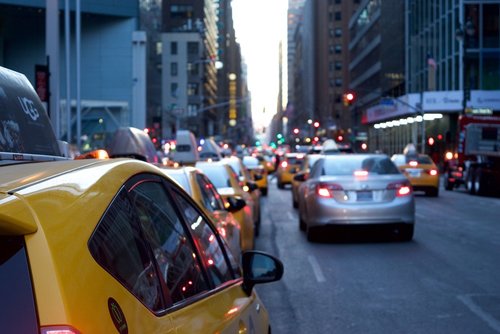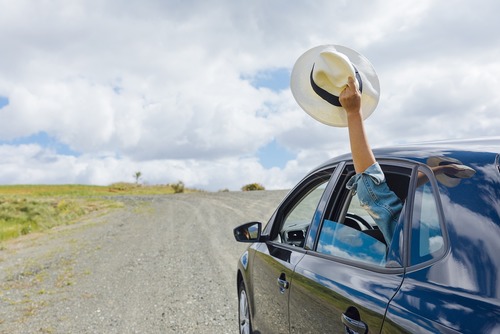A July 2012 investigation commissioned by online car rental marketplace Carhiremarket.com suggests that we should examine the data more closely before jumping to conclusions.
UK Department for Transport figures support the popular conclusion that public transport is greener, but they don't factor in emissions generated by each transport method's infrastructure - from assembly line and fuel production to the laying of roads and trackways.
Per journey, infrastructure can more than double greenhouse gases emissions created by simply driving a vehicle. Additionally, many of our journeys use multiple modes - plane and taxi, for example, or train and rental car.
We'd all like to choose what's best for the environment, but what's really the best way to travel?
In 2009, UK car, light van and taxi emissions accounted for 15% of the UK's CO2 output, with rail accounting for 0.37%. However, a study carried out by the University of California in the same year indicated that a transport method's lifecycle (vehicle production, maintenance, infrastructure construction, fuel production and delivery, for example) adds up to 63% CO2 to road journeys, and a whopping 155% to rail. With this factored in, the car/taxi/van journey CO2 output jumps to 24.9% of the annual total, with rail still contributing less than 1%, at 0.96%.
This certainly looks like rail is best, but what about emissions per person per journey?
In 2009, Brits travelled 680 billion kilometres by car, taxi or van, but only travelled 61 billion kilometres by rail. That means that UK train journeys produced less than half the overall CO2 per passenger, per kilometre than journeys by road - and that's when you factor in the Californian "total infrastructure" study. On tailpipe emissions alone, one train p/km generates 77% less CO2 than one car p/km.
On these figures, rail certainly is looking better from an environmental perspective, but cars remain the more popular option. There are many factors causing this - from less admirable ones like fear of change to more practical causes, like lack of availability - many journeys simply aren't possible by rail.
The answer, as it so often does, may well lie in compromise, particularly on long journeys. Some commuters opt for a fold-up bike which they can take on the train, although this isn't an option for everyone, as there often isn't much space for people on commuter trains, let alone bikes. Beyond the commute, bikes-on-trains aren't so practical if you're carrying lots of luggage, let alone travelling with kids, elderly relatives, or anywhere far beyond the nearest railway station.
The best compromise, according to the data, is to take the train as close to your destination as possible, then use a hire car to reach your precise destination.
Rental cars are arguably more environmentally friendly than the average family car, anyway. They're more likely to be new, with (on average, in the UK) 12% lower exhaust CO2 emissions compared to cars nationwide. They emit lower levels of other local pollutants, too. Compared to privately owned cars, they're typically used more efficiently, because they're hired out 70-80% of the time, and usually carry more passengers, which reduces emissions per passenger, per kilometre.
Let's use a real-life journey to compare the two methods - car only, and rail+car
London Paddington to the charming Cotswolds town of Broadway is a typical journey taken by holidaymakers in the UK. Let's say we're travelling with four passengers.
It's impossible to reach Broadway directly by train. If you're going to use public transport at all, you must catch a train to Moreton-in-Marsh, and then use a car to finish the trip.
That's 144.7km, by car alone. The rail journey to Moreton is actually longer, at 147km, plus 15.4 once you're in the car. But even though the rail/hire journey is longer than the car trip, it still generates less CO2 - whether or not you factor in those lifecycle emissions. And that's not even taking traffic jams into consideration. So it looks like our common sense was on the money - train travel is better for the environment than car travel, and we just have to make sure we hire the greenest vehicle available with which to finish our journey.
Our website features hundreds of eco holidays including small group tours and volunteering programs.








